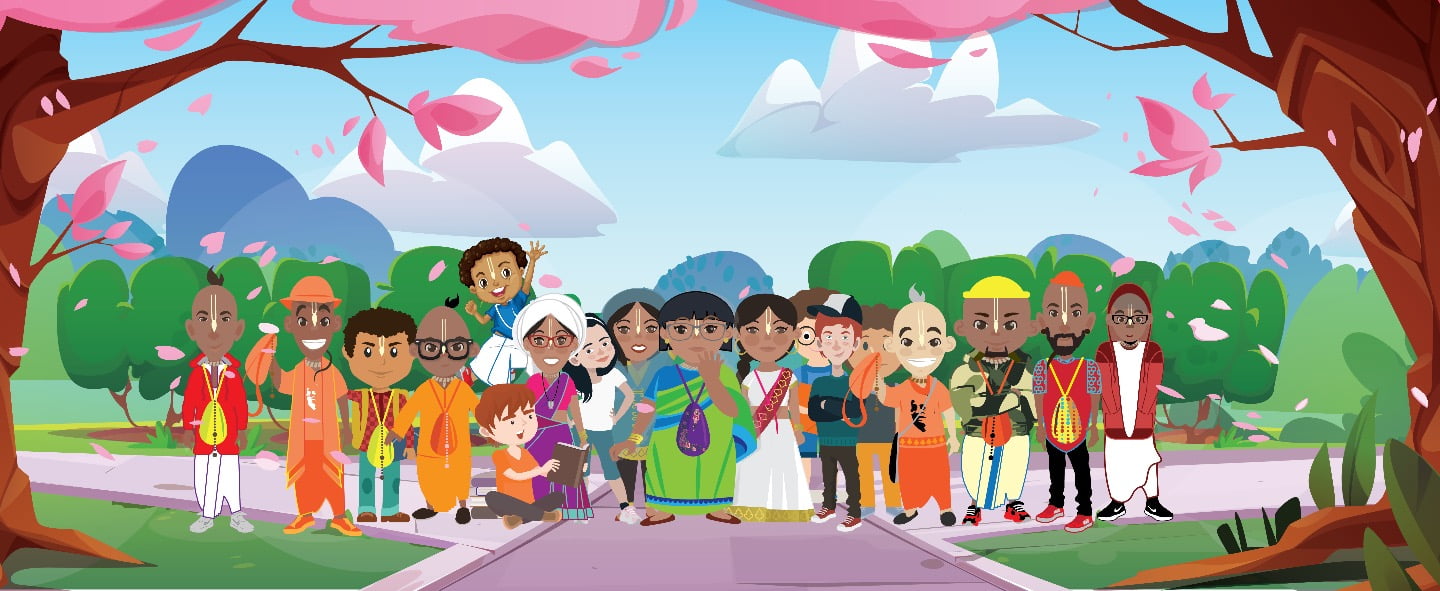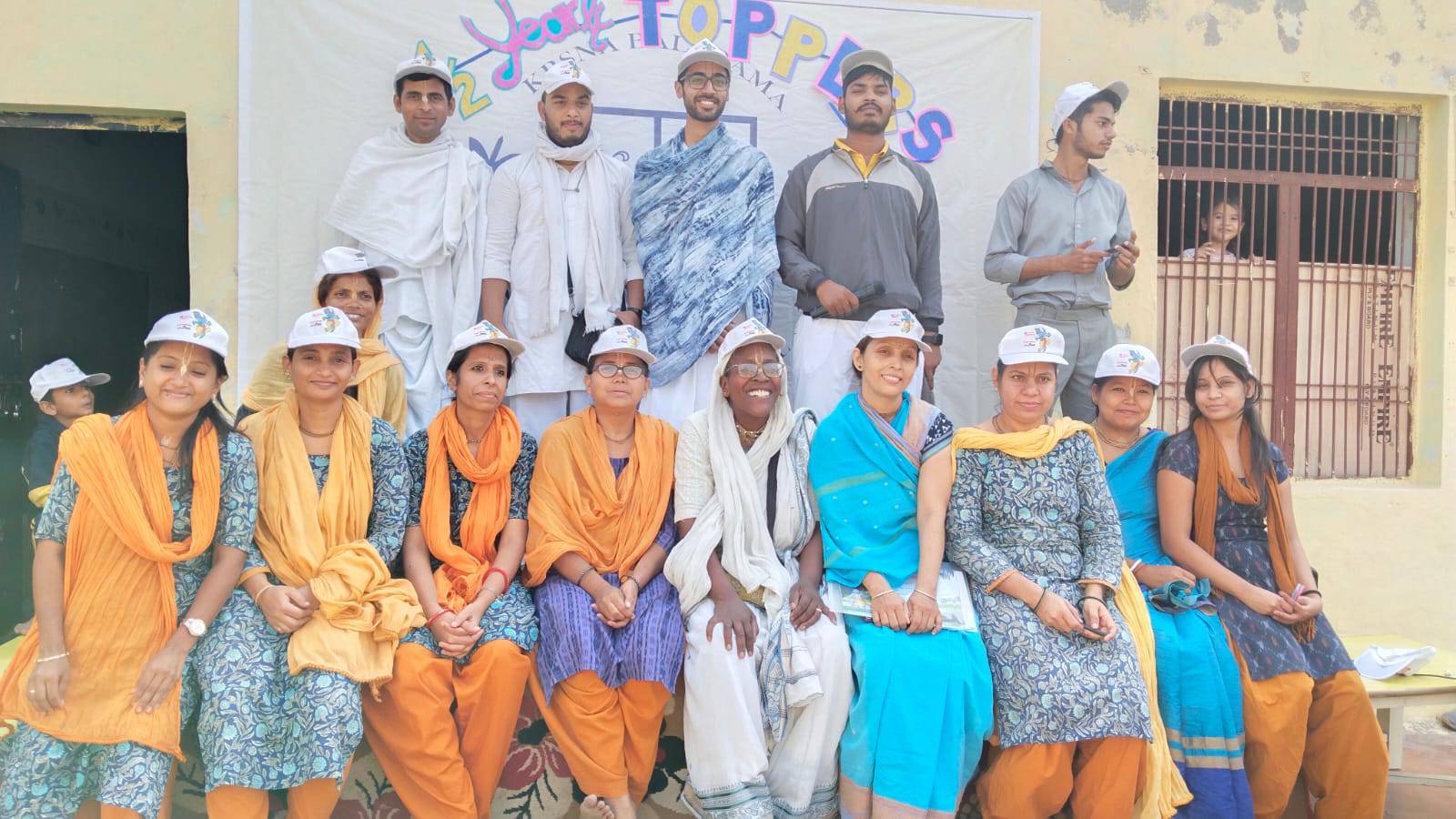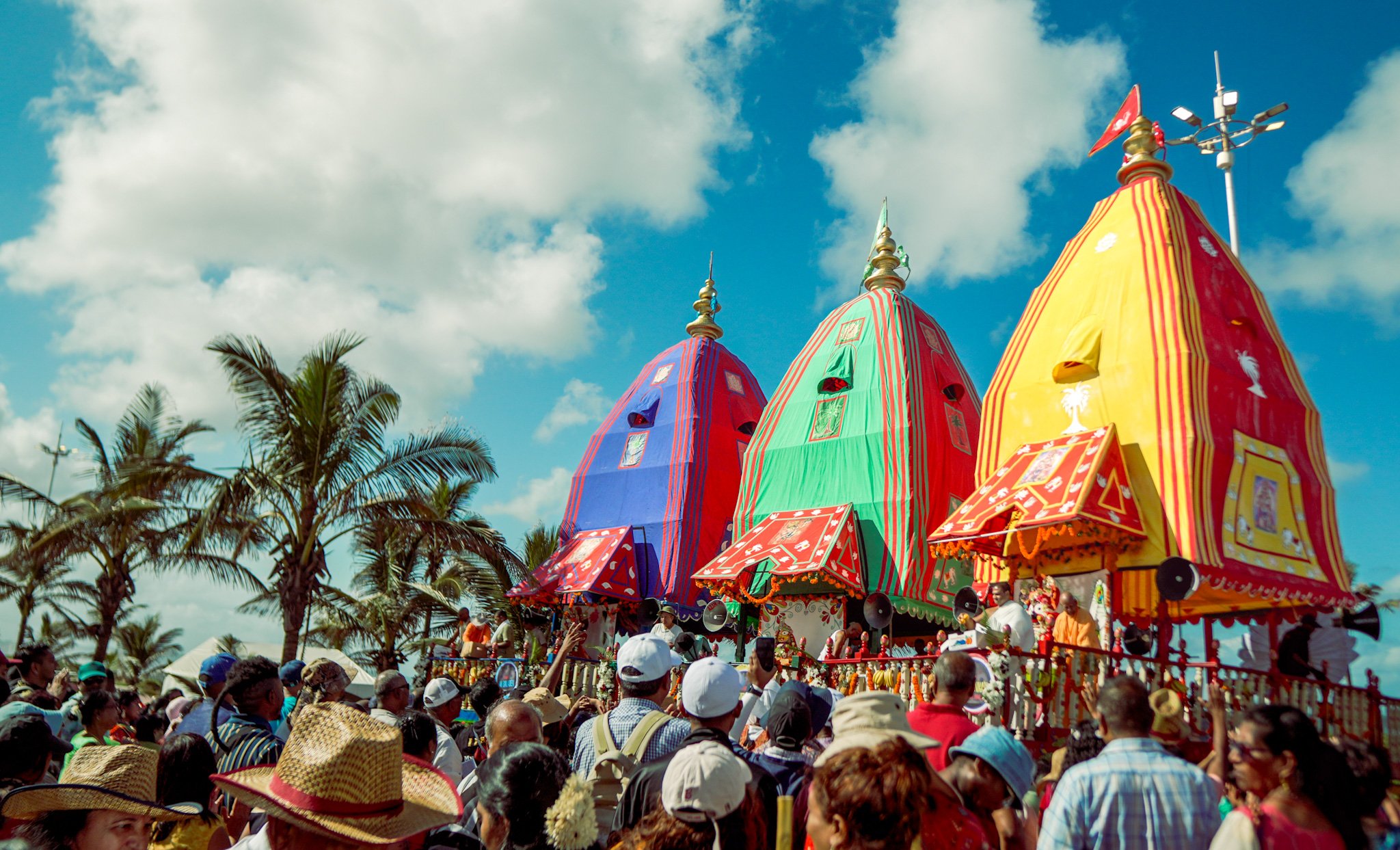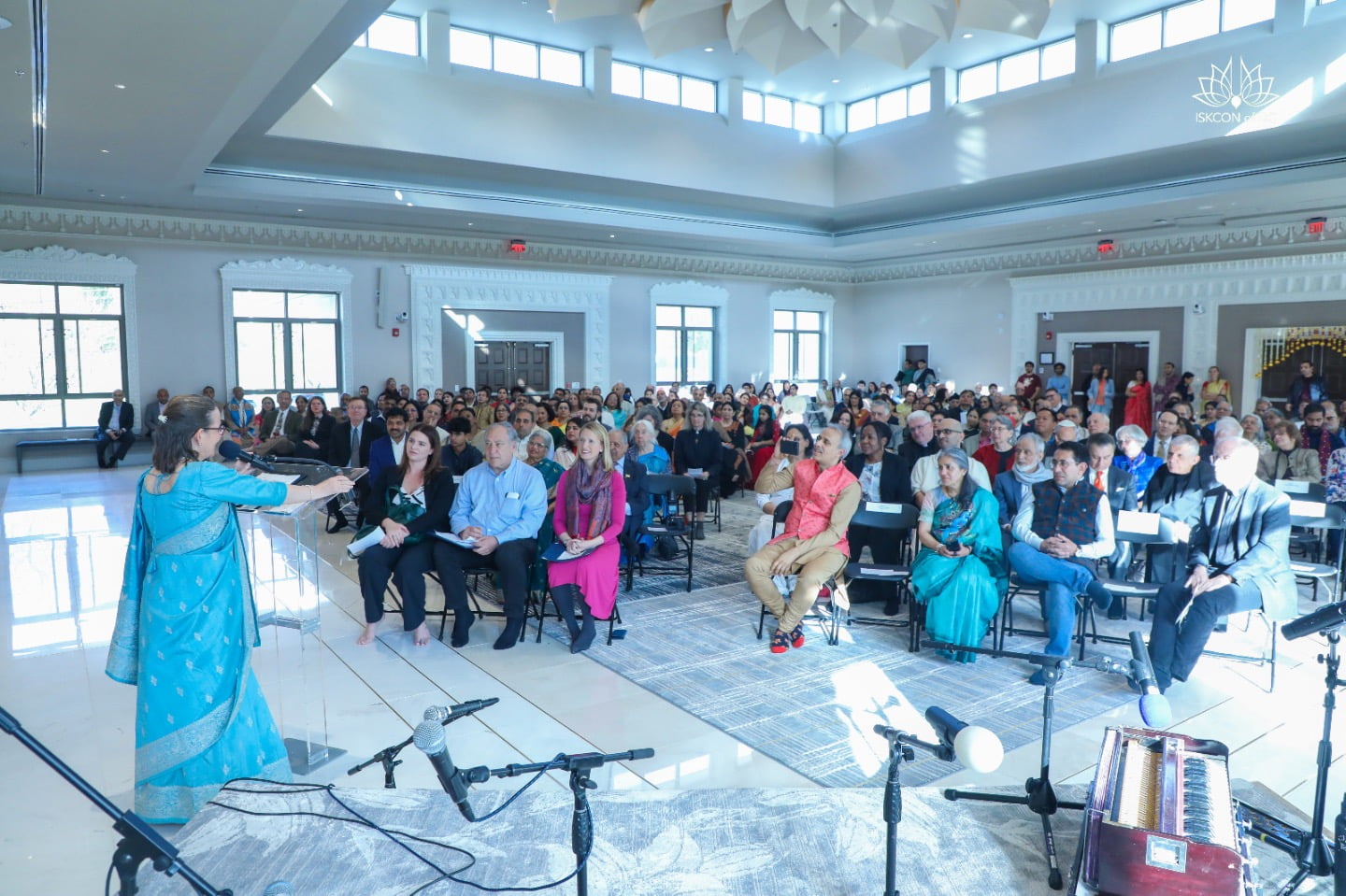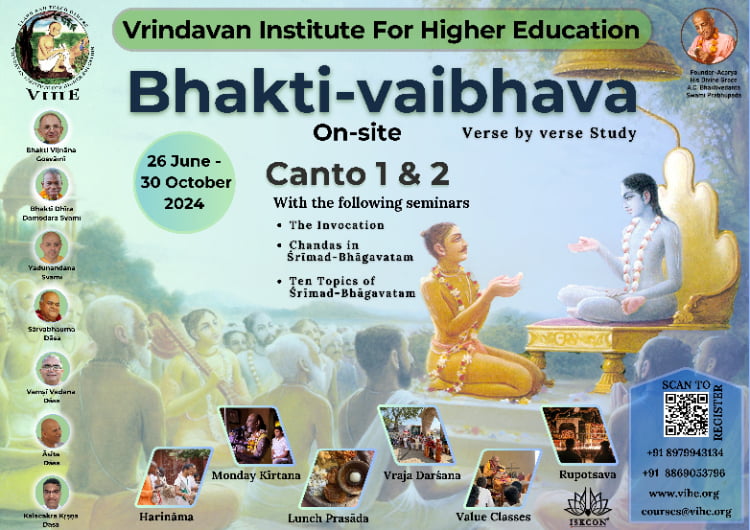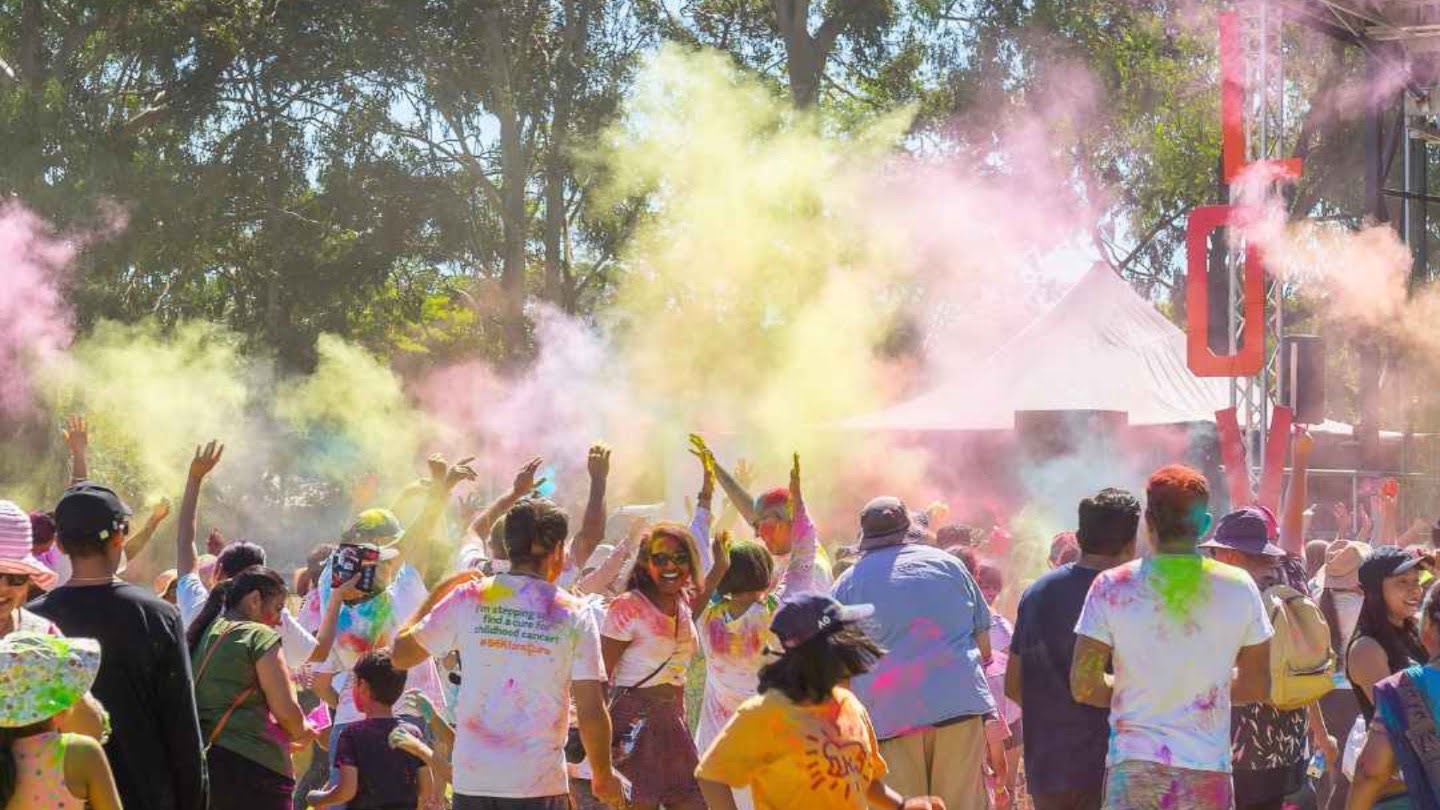Protest and Reconciliation: In the Footsteps of a 15th Century Freedom Fighter
By Purushottam Kumar | Jan 19, 2018
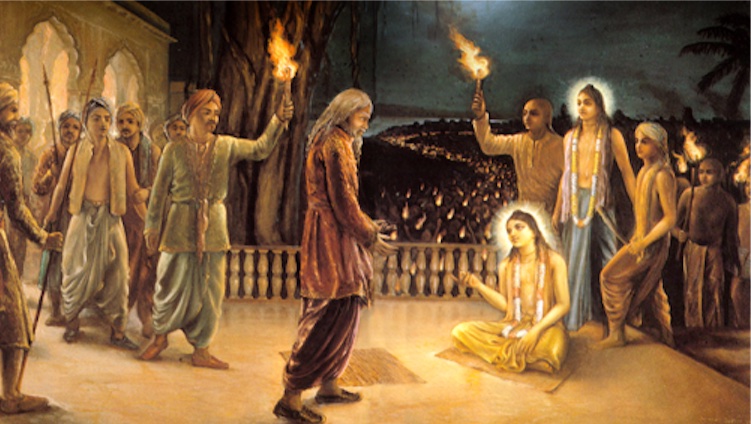
Tens and thousands of people were out on the streets in the night carrying torches in their hands ready to be part of an extraordinary movement. If they remain silent, lock themselves in their houses and give in to the draconian dictum of the Muslim magistrate of Nabadwip, West Bengal then they would never be able to live freely. They would be like slaves without shackles. Men and women, young and old, rich and poor, brahmanas and non-brahmanas, so called upper caste and lower caste Hindus all had assembled. They had lots of faith in Sri Chaitanya Mahaprabhu, his words were magical, his presence was inspirational, he always brought hope in their life.
Sri Chaitanya Mahaprabhu who had appeared in 15th century preached that sankirtan, the congregational chanting of the Holy names of Krishna, is the best way to express devotion to Lord. He declared that the Lord’s name can be chanted by anyone and everyone irrespective of caste, creed and sex. Chaitanya Charitamrita (CC) describes, ‘When the sankirtana movement thus started, no one in Nabadwip could hear any sound other than the words “Hari! Hari!” and the beating of the mrdanga and clashing of hand bells.’ CC Adi 17.123
The caste brahmanas were furious. They always claimed that they only have the right to utter the names of Lord mentioned in the Vedic books because they are born in a brahmana family. They feared that if anyone and everyone start reading Vedas and chanting the names of Lord then they will lose their prominence. India was under the rule of the Muslim rulers at that time. Muslims were the first class citizens, they had the freedom to practice their religion publicly. But seeing Hindus unitedly practicing their religion in large numbers that too publicly they felt threatened.
Caste brahmanas and Muslims came together against the common devotees of Krishna. They approached Chand Kazi, the Muslim magistrate of Nabadwip. Chand Kazi wasted no time and went for an inquiry. He saw that people everywhere forgetting their worldly and bodily identity were enjoying chanting the names of Krishna. He stormed into one of the houses where sankirtana was going on and he broke the sacred mridanga. The Kazi ordered them not to chant the holy names of the Lord publicly and if they defy his order then he will confiscate their properties and also forcibly convert them to Muslims. Converting Hindus to Muslims was as easy as changing a piece of cloth during those days. It may sound ridiculous today but the fact was if a Muslim sprinkled water from their pitcher on any Hindu then it was considered that the Hindu person has lost his religious identity as per orthodox brahmanas and was considered a Muslim.
The Hindus were flabbergasted. Although their hearts desired to sing the glories of Krishna but fearing worst they remained mum, they longed to practice devotion in fresh air but remained indoors. They looked into each other’s tearful eyes and almost gave up the hope of performing sankirtana ever again.
When the news reached Chaitanya Mahaprabhu then he was miffed. He decided not to tolerate those who deprive the thirsty hearts from singing the glories of Krishna. He assured all that devotion to Krishna will continue unabated and he will personally ensure this. Chaitanya Mahaprabhu planned for a massive protest march to the house of Chand Kazi. It was a unique kind of non – cooperation movement against the Muslim rule. The devotees had come together under one umbrella to protest against the injustice meted out to them. They were fighting for their right, their right to practice their religion with dignity. Chaitanya Mahaprabhu was their leader and all had complete faith in him.
When thousands of devotees chanting “Hari! Hari!” and singing Hare Krishna Mahamantra marched together carrying torches it appeared that a massive wave is going to engulf entire Navadwip. Mammoth crowd of protesters outnumbered Chand Kazi’s soldiers and they immediately fled from there. Upon reaching the house of Kazi, Chaitanya Mahaprabhu asked that Chand Kazi be brought to them. Petrified Kazi was not willing to come, he had hid himself. Finding no other option he finally came to meet Chaitanya Mahaprabhu. When Kazi was confronted by Chaitanya Mahaprabhu as why he had banned the chanting of Krishna’s names then Kazi had no answers. He said that he has been misled by few unscrupulous Muslims and caste brahmanas.
Chaitanya Mahaprabhu’s polite demeanor and logical argument defeated the Muslim magistrate. The conversation between the two went for a very long time and at the end Chand Kazi was convinced that his action was unjust. He in fact started appreciating the teachings of the Vedas. Thousands of people’s resolve to practice devotion also melted his heart. He understood the devotees who are chanting the Lord’s names are not creating any nuisance, they are only expressing their devotion to Lord.
Chand Kazi accepted his mistake and assured that henceforth every individual in the town of Nawadwip are free to chant the names of Krishna. Not just this he also pledged that none of his descendant will ever try to stop the congregational chanting of the holy names of Krishna. The Kazi said, ‘To as many descendants as take birth in my dynasty in the future, I give this grave admonition: No one should check the sankirtana movement.’ CC Adi 17.222. The residents of Navadwip were delighted, they began performing sankirtan and even Chand Kazi joined them.
Chand Kazi is revered by all the Vaishnavas especially by the followers of Chaitanya Mahaprabhu even today. His samadhi is in Mayapur, West Bengal. Scores of devotees visit Chand Kazi’s samadhi daily to pay their respects and to chant Krishna’s holy names there. The descendants of Chand Kazi have reverence for the Vaishnava devotees, the followers of Chaitanya Mahaprabhu who relish chanting the Hare Krishna Mahamantra.
* * *
References: Chaitanya Charitamrita by Krishnadasa Kaviraja; Chaitanya Bhagavata by Vrindavana Dasa Thakura
Purushottam Nitai Das is a member of congregation at Iskcon Kolkata. He works in IBM as an Advisory Consultant. He blogs at http://krishnamagic.blogspot.in/



